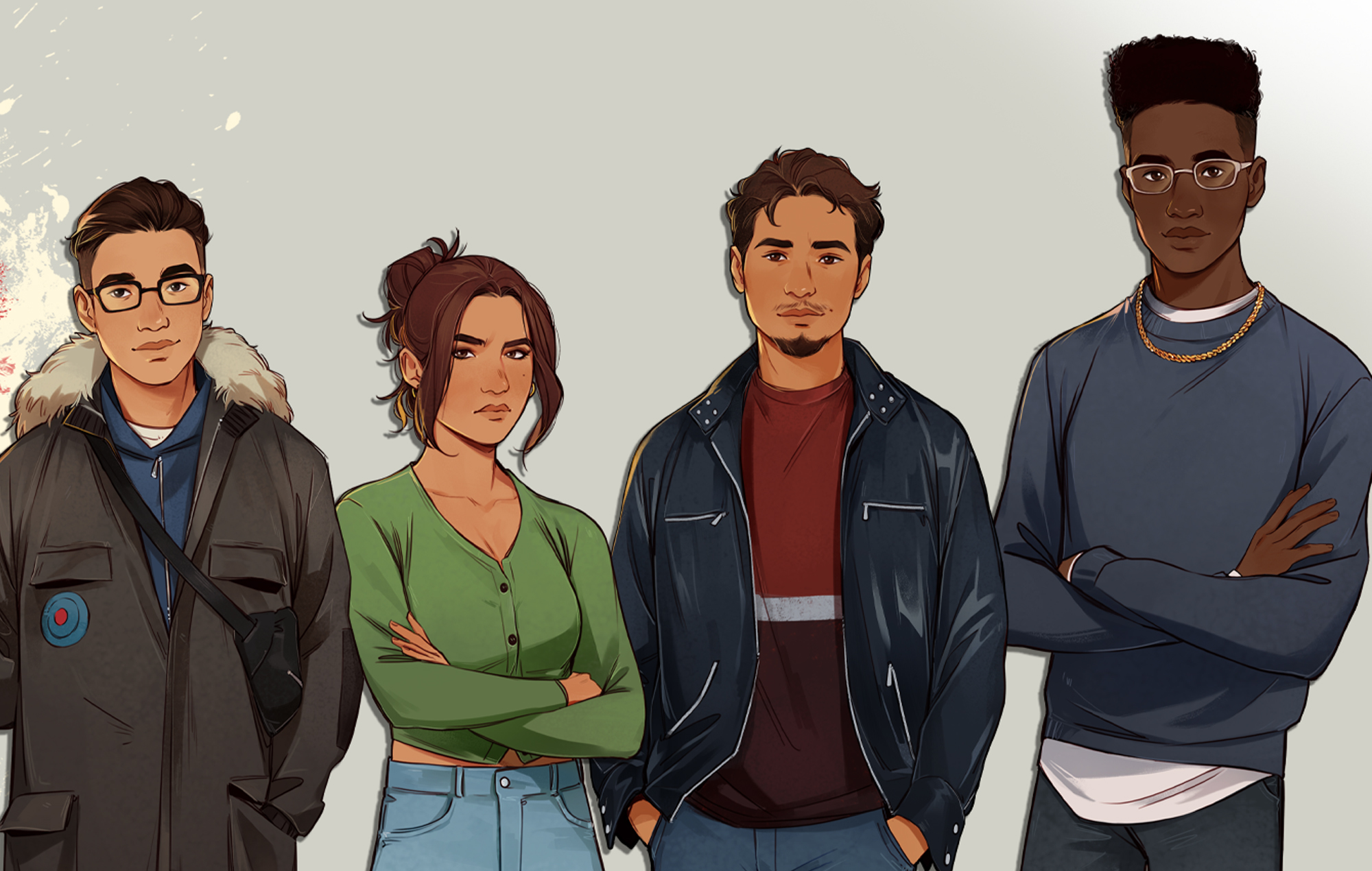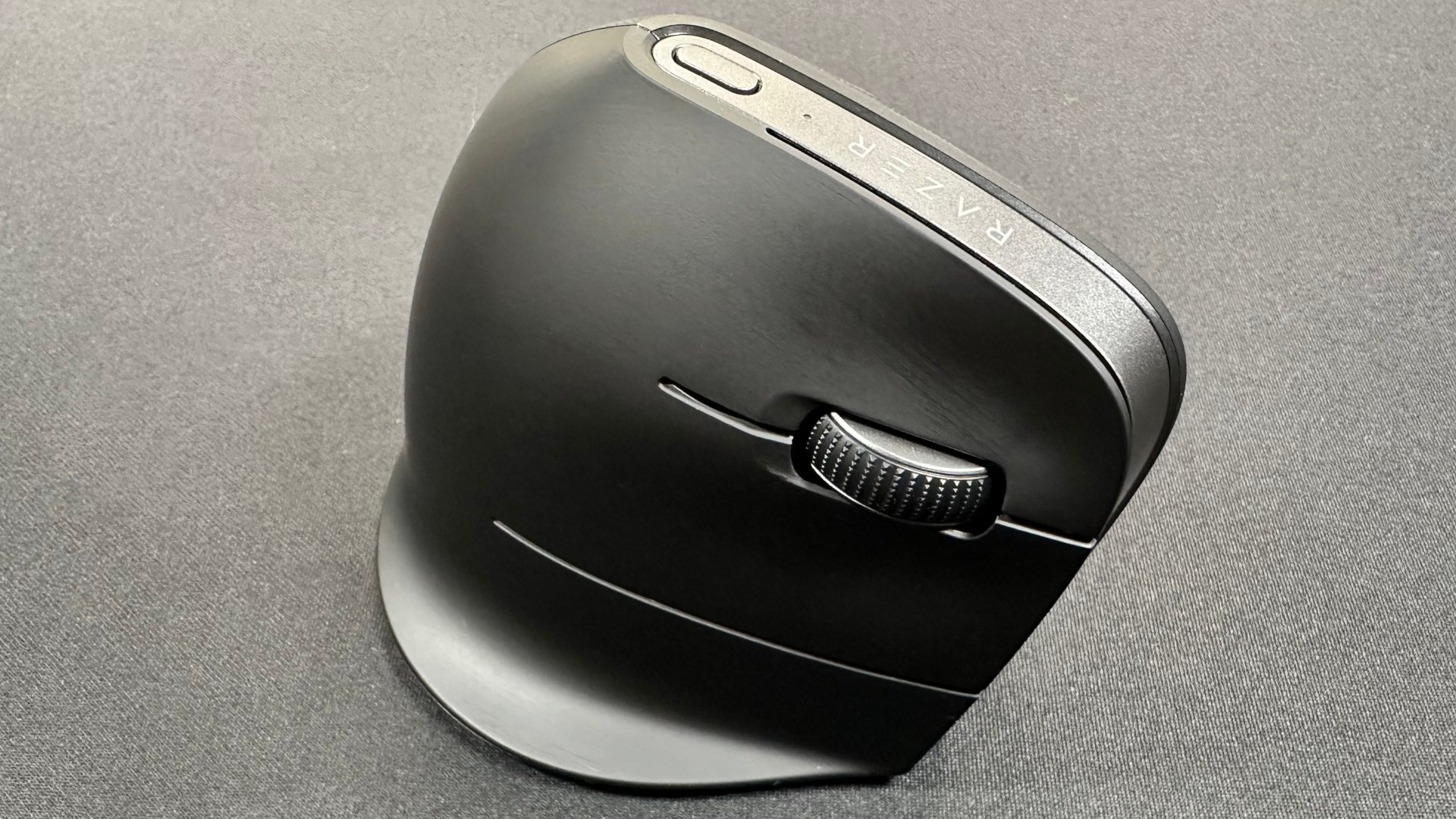Our Verdict
Not Tonight 2 does a decent job of adapting Papers, Please to a terminally hateful America, but the premise wears thin with every pit stop.
PC Gamer's got your back
What is it? A paperwork simulator set in the death throes of the United States.
Expect to pay: $20/£15.50
Developer: PanicBarn
Publisher: No More Robots
Reviewed on: Windows 10, GeForce RTX 2070 Super, Core i7-9700 @ 3.00GHz, 16GB RAM
Multiplayer? None
Link: Official site
Not Tonight 2 has one of the bleakest opening sequences in the history of videogames. A crowd of Black and brown twenty-somethings are protesting outside a bar in Seattle when an unmarked van pulls up and a modern-day American Gestapo tosses one of them into the back of a van. With your friend now incarcerated in a Miami "gulag," you and your comrades set off on a rescue mission.
From there, I expected Not Tonight 2 to send me on a treacherous journey across a violent, white-nationalist landscape. Instead, one of my first stops was North Dakota, where I found that an everlasting Renaissance Faire had taken up residence in the shadow of Mount Rushmore. (The presidents have been replaced by wizards.) The tension was zapped away in an instant. Not Tonight 2 pulls plenty of influence from the political zeitgeist, but delivers a colorfully crude pastiche rather than transcendent satire.
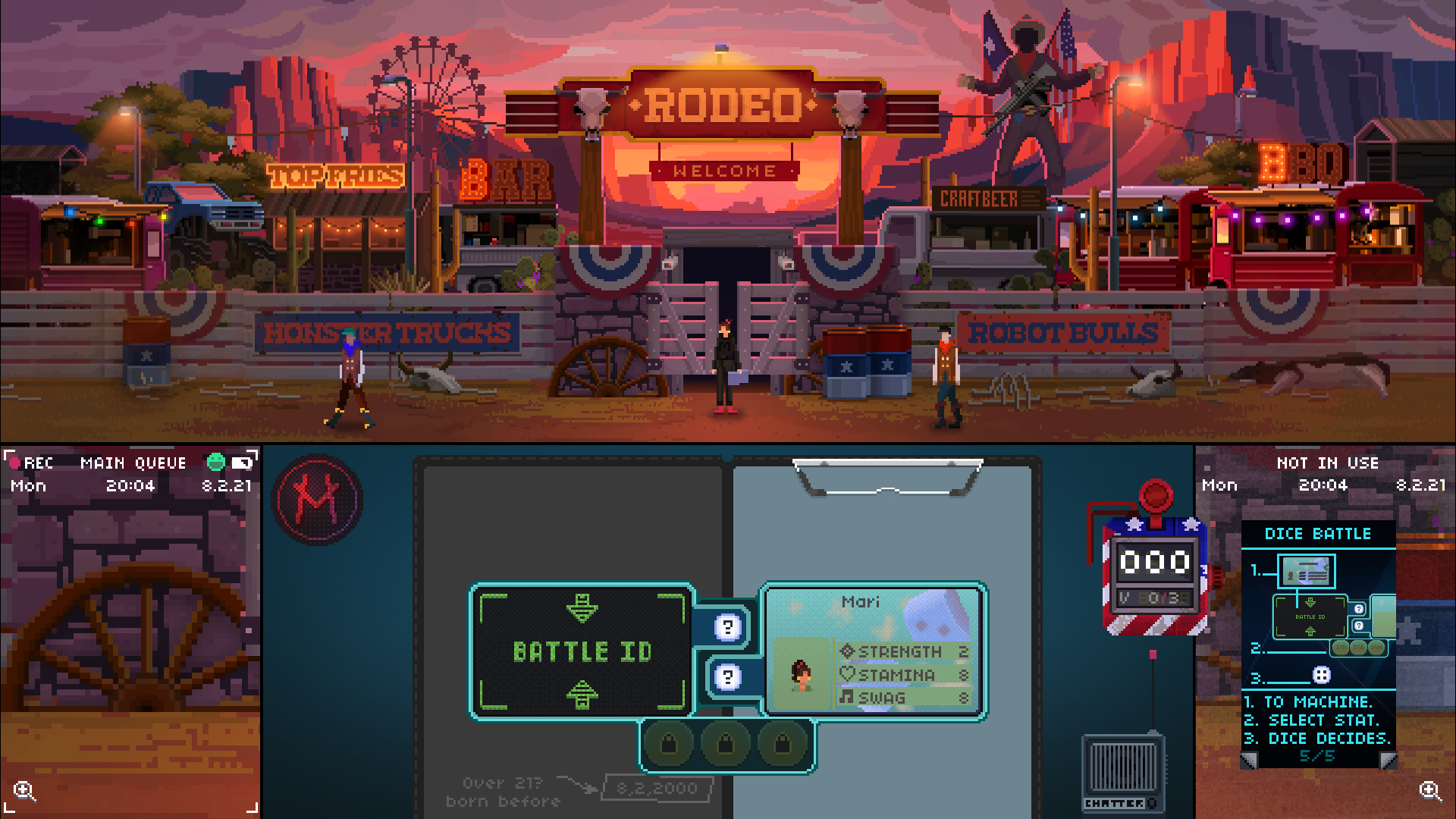
Like the first game in the series, Not Tonight 2 borrows nearly the full breadth of its mechanical functions from Lucas Pope's beloved 2013 classic Papers, Please. You are a bouncer, and the only way to generate enough gas money to make it to Miami on time is by working at every club left standing in our tattered country. In gameplay terms, that means you pull into some sort of depraved American locale, find a gig, and check IDs for pennies before pulling into the next station for the subsequent chapter of the linear story.
Your bureaucratic duty is supposed to feel like a drag, but Not Tonight 2 comes up with just enough variations to keep it from being totally consumed by tedium. At first you will simply be checking to make sure your patrons are above 21 and don't have an expired license, but before long you'll be scanning biometrics, seizing contraband, and kicking anti-maskers out of the queue. In one memorable pitstop, I needed to check "musical tickets," which asked me to pass a quick rhythm game while verifying that all of the other paperwork was in order. Elsewhere, I needed to check potential patients for a virus (read: Covid), before letting them pass the velvet ropes. Honestly, in 2022 when every bartender is forced to line up vaccination cards with photo IDs, perhaps Not Tonight 2 will engender some sympathy for the mind-numbing chores of authentication. It couldn't have been released at a better time.
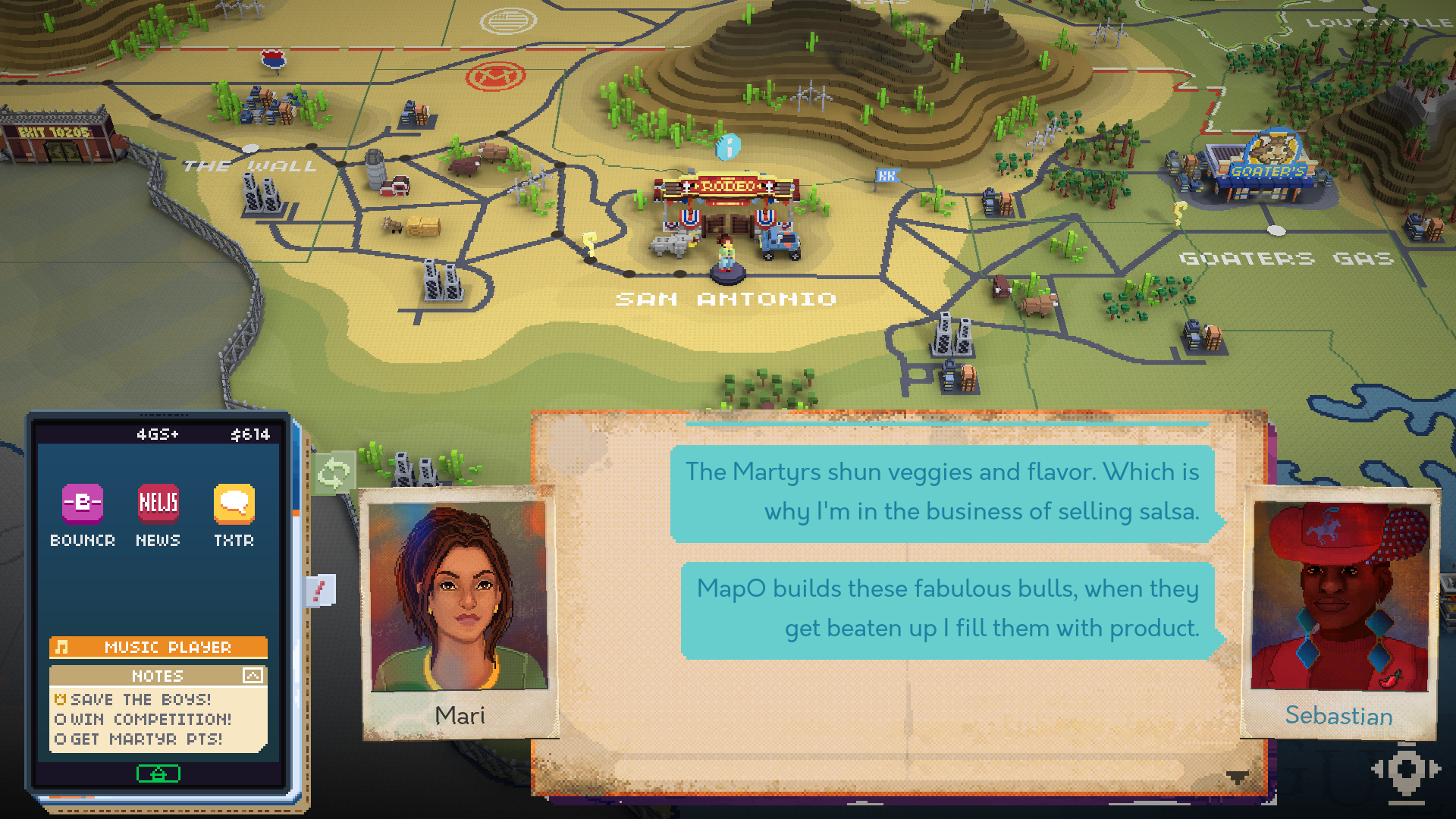
Not Tonight 2 is not a particularly subtle videogame.
The highlights in Not Tonight 2 are found in the vividly destitute depiction of the US after multiple cascading crises. The south has seceded again, snapping the borders in two. Climate change has put New York City under water. Some sort of unnamed pandemic is raging out of control, to the point that most of the Midwest is in a constant state of plague. (Also, the air is unbreathable in Los Angeles, but that's about par for the course.) You don't get to do much exploring within these cities—your character essentially stands in front of a static panorama with a clipboard—but the imagery itself is gorgeously rendered. Not Tonight 2 wields vintage, SCUMM-era pixel art with modern processing power, and it brings to mind the most verdant vistas you could find in the Monkey Island series. In San Antonio, for instance, I worked a rodeo complete with a monolithic red-eyed cowboy looming in the background, like a sinister version of the famed Big Tex. America might be in freefall, but developers Panic Barn sure enjoyed painting the decay.
All of this is to say that Not Tonight 2 is not a particularly subtle videogame. On a jaunt to the southern border I found that Trump did in fact build his wall, but ironically, these days it's used more for keeping Americans in rather than foreigners out. A big-tech, neoliberal billionaire promised me deliverance in Raleigh; his name was "Tom Swooney." At one point I found myself in a chicken slaughterhouse… where I used the same bouncer apparatus to decide which chickens were sent off to be butchered? I don't know, this game goes places. I think there are moments where Panic Barn latches onto some genuinely trenchant commentary, but the overall vibe here is so silly and relies on so many lowest-common-denominator cliches that I found the tone to be a little unfocused, like a synthesis of gray, formless Twitter takes. I mean, the spark of the narrative here is eminently relatable. We do live in a country where innocent people are being conspicuously detained over questions about their heritage. Maybe I'd just like that to be treated with a bit more gravity, a little more rage.
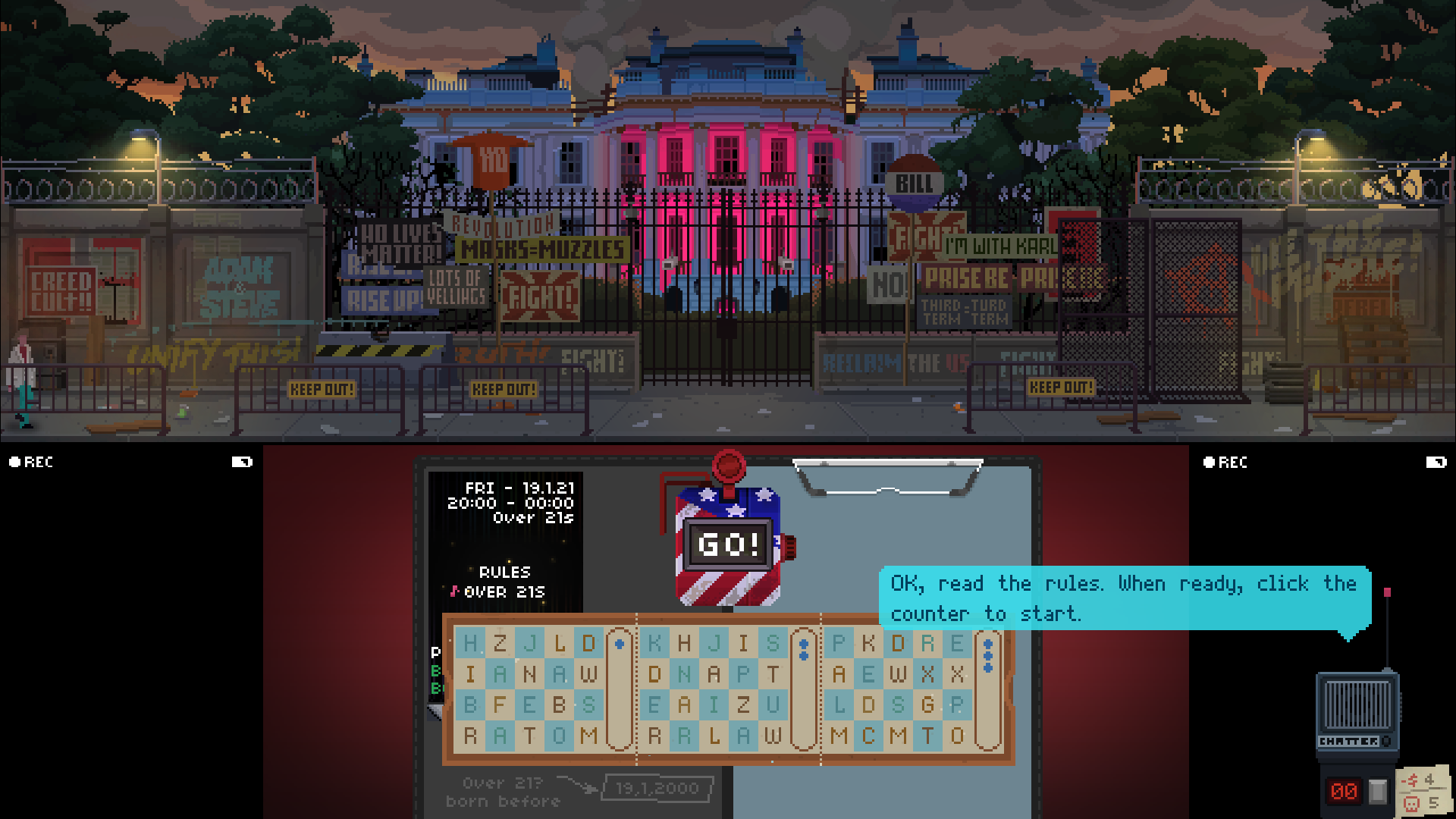
This is the sort of development philosophy I thought we shed in 1992, right around the time Zork made the jump to 3D.
That lack of focus carries over into some of Not Tonight 2's more ancillary design choices. When you're not checking IDs, you'll be staring at an atlas, moving from town to town, and managing your health and morale meters. If either drop to zero, you're presented with a game over screen. The problem is the way you supply those pools is almost entirely random. There are a couple of vague, secret objectives at the end of each chapter which replenish your stats, and over time I was able to achieve those with reliable consistency. But what's more frustrating is that a lot of Not Tonight 2's plot is told through a series of choose-your-own-adventure text boxes, and those are replete with all sorts of early King's Quest-style punitive bullshit that can terminate a run out of nowhere. Pick the wrong dialogue choice? Bam, lose 10 health. You have no way of predicting why; it's just bad luck. At one point I was forced to reload an earlier save, and replay an entire chapter's worth of content, because one of those chokepoints left my game in an unwinnable state. This is the sort of development philosophy I thought we shed in 1992, right around the time Zork made the jump to 3D.
I generally enjoyed my time visiting Not Tonight 2's fallen America, and I even learned to love the heuristics of scrutinizing documents, awakening a furtive DMV fantasy within me. But to reiterate, this is a game about checking paperwork. That's all you'll be doing across its eight hours. I enjoyed Papers, Please, but I chalk that up to the game's airtight aesthetic. You're a border agent between two grim, newly-independent Eastern Bloc nations, and the brutal monotony of that existence pounds you into a pulp by the time you see credits. With Not Tonight 2, I was left unconvinced that a bouncer had the best vantage point to explore this fascinating universe—it's too colorful, too interesting, and too macabre to be kept at arm's length. Handing out tickets was fun, but I wanted to see the party for myself.
Not Tonight 2 does a decent job of adapting Papers, Please to a terminally hateful America, but the premise wears thin with every pit stop.

Luke Winkie is a freelance journalist and contributor to many publications, including PC Gamer, The New York Times, Gawker, Slate, and Mel Magazine. In between bouts of writing about Hearthstone, World of Warcraft and Twitch culture here on PC Gamer, Luke also publishes the newsletter On Posting. As a self-described "chronic poster," Luke has "spent hours deep-scrolling through surreptitious Likes tabs to uncover the root of intra-publication beef and broken down quote-tweet animosity like it’s Super Bowl tape." When he graduated from journalism school, he had no idea how bad it was going to get.
